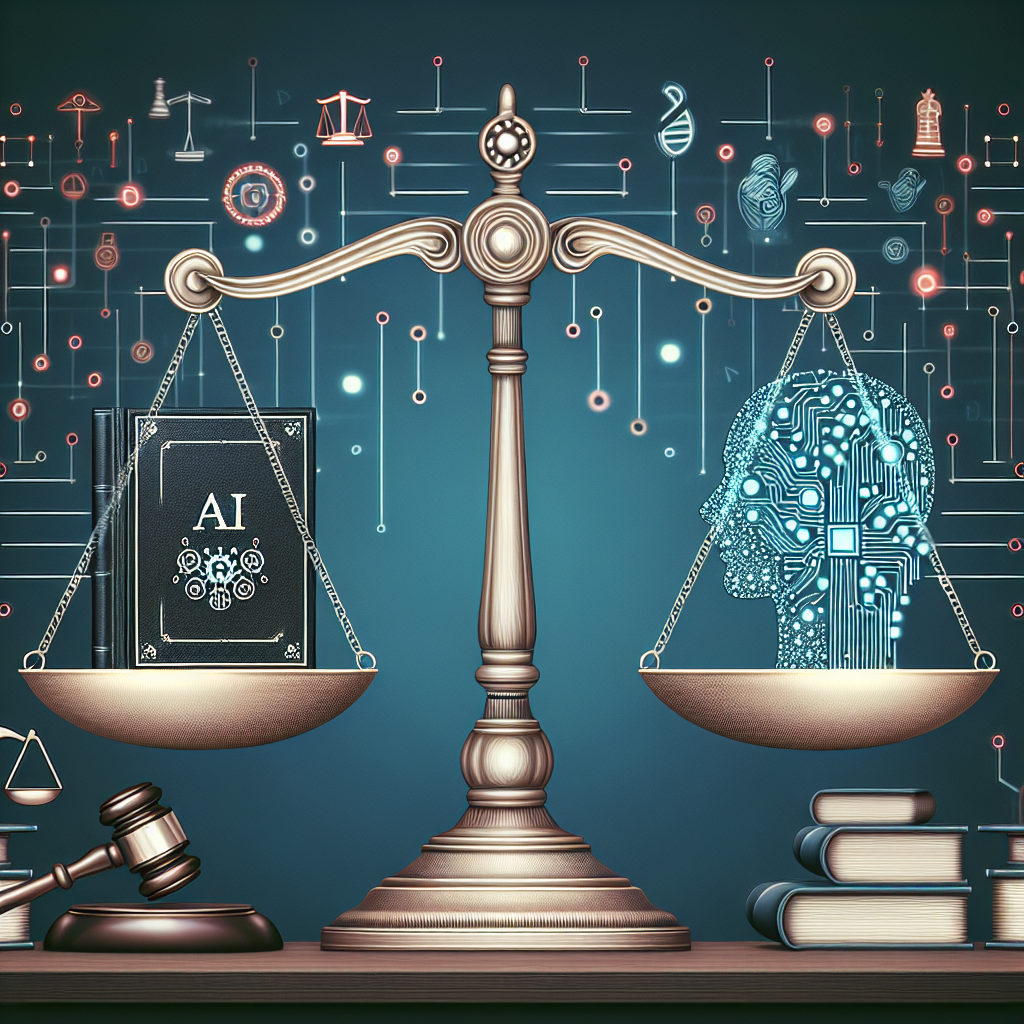Artificial Intelligence (AI) has the potential to revolutionize many aspects of society, including the criminal justice system. From predictive policing to sentencing algorithms, AI is being used in various ways to improve efficiency and effectiveness in the criminal justice process. However, with this increased use of AI comes a host of ethical considerations that must be carefully navigated to ensure that the technology is being used in a fair and just manner.
One of the key ethical considerations for AI in criminal justice is bias. AI systems are only as good as the data they are trained on, and if the data used to train these systems is biased, then the AI system itself will be biased. This can lead to discriminatory outcomes, where certain groups are unfairly targeted or treated differently by the criminal justice system. For example, if an AI system is trained on historical arrest data that disproportionately targets people of color, then the AI system may also disproportionately target people of color for arrest in the future.
Another ethical consideration is transparency. AI systems are often seen as black boxes, where it can be difficult to understand how the system is making decisions. This lack of transparency can lead to a lack of accountability, as it may be challenging to challenge or appeal decisions made by AI systems. It is essential that AI systems used in criminal justice are transparent and explainable, so that those affected by the decisions of the system can understand how those decisions were made.
Privacy is also a significant ethical consideration when it comes to AI in criminal justice. AI systems often rely on large amounts of data, including personal information about individuals involved in the criminal justice system. It is essential that this data is handled in a way that respects individuals’ privacy rights and complies with relevant data protection laws. There is also the risk that this data could be misused or hacked, leading to serious breaches of privacy.
Finally, there is the ethical consideration of accountability. Who is ultimately responsible for the decisions made by AI systems in the criminal justice system? If an AI system makes a mistake that leads to an unjust outcome, who should be held accountable? It is essential that there is clear accountability for the decisions made by AI systems in the criminal justice system, to ensure that those affected by these decisions have a way to seek redress.
In conclusion, there are many ethical considerations that must be carefully considered when using AI in the criminal justice system. From bias to transparency to privacy to accountability, it is essential that these ethical considerations are addressed to ensure that AI is being used in a fair and just manner. By carefully navigating these ethical considerations, we can harness the power of AI to improve the criminal justice system while minimizing the risks of harm.
FAQs:
Q: How can bias be addressed in AI systems used in criminal justice?
A: Bias can be addressed in AI systems used in criminal justice by carefully examining the data used to train these systems and ensuring that it is representative and unbiased. It is also essential to regularly audit AI systems for bias and take steps to mitigate any biases that are identified.
Q: How can transparency be improved in AI systems used in criminal justice?
A: Transparency can be improved in AI systems used in criminal justice by using explainable AI techniques that provide a clear rationale for the decisions made by the system. It is also essential to provide individuals affected by the decisions of AI systems with the information they need to understand how those decisions were made.
Q: How can privacy be protected in AI systems used in criminal justice?
A: Privacy can be protected in AI systems used in criminal justice by ensuring that data is handled in a way that complies with relevant data protection laws and respects individuals’ privacy rights. It is also essential to implement robust security measures to protect this data from misuse or hacking.
Q: Who is ultimately responsible for the decisions made by AI systems in the criminal justice system?
A: There is currently no clear answer to this question, as responsibility for decisions made by AI systems in the criminal justice system is still a subject of debate. It is essential that there is clear accountability for these decisions, to ensure that those affected by them have a way to seek redress.

